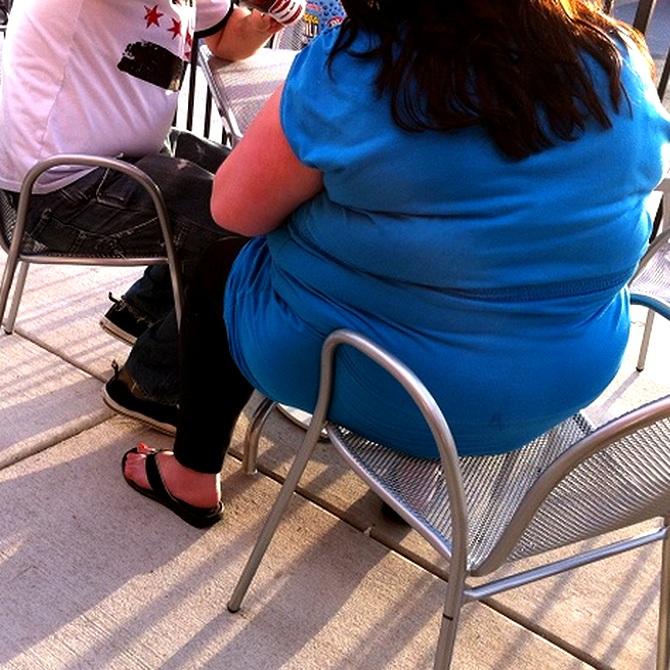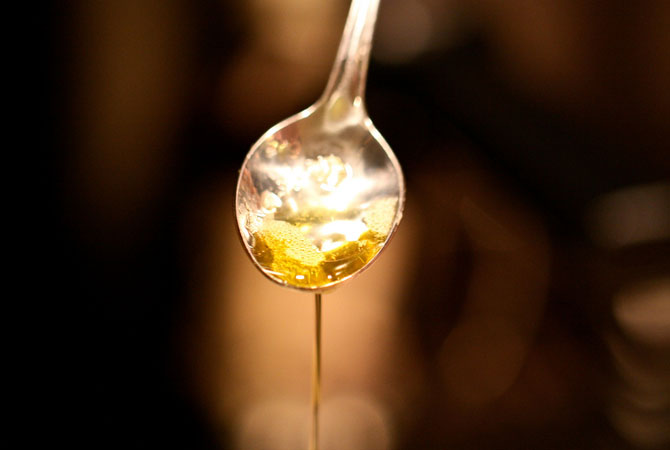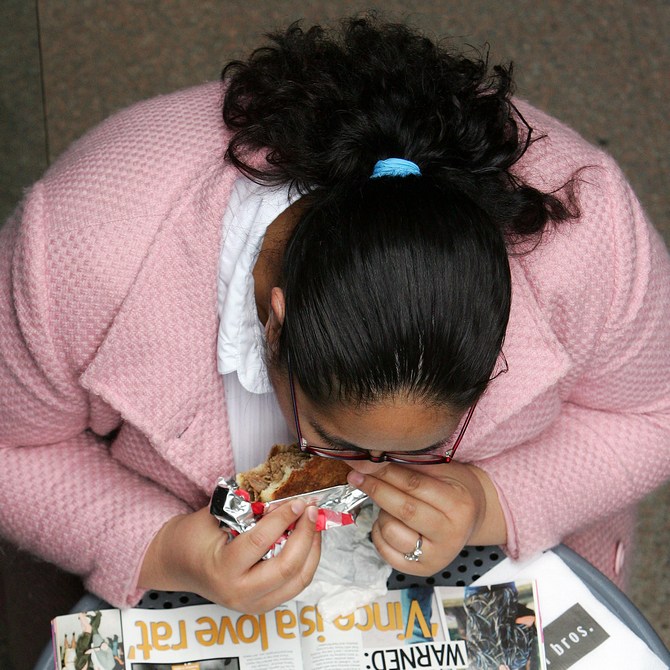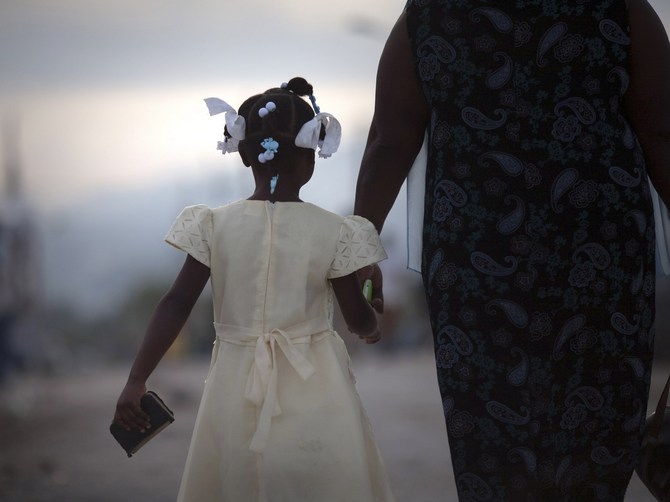Photographs: Wikimedia Creative Commons Paloma Sharma
Obesity is one of India's greatest health problems. In a country where 50 per cent of its population is under 25 years of age, this can have serious repercussions.
The World Health Organisation declared obesity a disease in 1998, and according to a study conducted by Fitho Wellness, a Delhi-based fitness company, 73 per cent adults in urban India are overweight and 46 per cent are obese.
But in India it is treated from a cosmetic point of view, says Mumbai-based Dr Paula Goel, whose work focuses on adolescent health and obesity.
The problems
A lot of Indian adolescents especially from the higher socio-economic groups have early onset of diabetes, blood pressure, skin problems, hair loss, joint problems -- all because of weight-related issues, Dr Goel says.
They also have psychosomatic problems like body pain -- calf cramps, abdominal pain, breathlessness and chest pain and severe headaches – develop allergies, and hormones go haywire.
There is also latent depression, Dr Goel says: "It is not an overt, clinical depression. It's a sort of the thing where you only see the tip of the iceberg."
Many youngsters put on weight around board exams.
"If there is severe stress you tend to eat more as it gives a feeling of contentment," Dr Goel explains. "Or people may go off food completely, and lose a couple of kilos."
Both are extremely harmful, she says.
The deeper question, she says, is why should a teenager be under so much of stress?
Young, obese? Here's what kids, parents can do
Image: It is a misconception that ghee is not fattening says Dr Paula Goel.Photographs: Chiots Run/Creative Commons
Lifestyle mistakes
We want to give more (to our children) but in the process of giving more we don't realize what we need to give and what we need to cut out," Dr Goel says.
Here's her advice:
Missing out on breakfast is the worst.
"If you have a good, heavy breakfast right from school days, your brain gets adequate glucose," Dr Goel explains. "Lunch should be a working lunch, otherwise you tend to feel sleepy, and dinner should be very light."
Skip the ghee, wafers.
"There is a misconception that ghee is not fattening," she says.
And wafers too are a no no. "The house has to be clean of all of that and stocked with healthy food."
Add the fruits, milk.
Fruit and milk intake is very less in the average Indian household, she says, and many think taking out the malai is skimmed milk.
"Skimmed milk is a process by which the fat is removed," she says. "If you get buffalo milk and remove the malai, it does not become skimmed milk."
Don't miss the vitamin D
Early morning sun rays have vitamin D, which we don't get enough of, Dr Goel says.
Vitamin D deficiency, she points out, hampers calcium absorption, and "affects all other systems right from heart to bones to skin to asthma. Vitamin D (deficiency) is also a precursor to cholesterol (problems)."
And the exercise
"I hardly see children physically playing," she points out. "There has to be some amount of sports. Sports cause a large amount of oxygen to reach your brain. People who play sports remain in good health, they perform well academically, they are able to handle stress and the immunity also does not collapse."
Young, obese? Here's what kids, parents can do
Image: Parents of most young women are only keen on making them lose weight so they can get them ready for the marriage market saysDr Paula Goel.Photographs: Will Burgess/Reuters
The attitude isn't helping
While Dr Goel rattles off the usual factors behind adolescent obesity -- excessive calories, sedentary lifestyle, genetic factors (Indians have more visceral fat than Caucasians, and smaller arteries), and endocrinal problems like thyroid imbalance -- she says parents are to blame too.
Most young girls she treats, she says, the mothers are just interested in making the daughters thin for marriage. "It is very disturbing," Dr Goel says.
Sometimes, the parents push too hard.
Dr Goel remembers treating a 16-year-old girl who weighed 140 kg. Under Dr Goel the girl lost 25 kg in three months, but the girl's mother was not satisfied and made the girl undergo surgeries.
"These surgeries are dangerous for a child," Dr Goel says. "We tried to talk to her mother but our laws here are not so strict. Ultimately you can't fight the parent."
She cites her toughest case: A boy she treated, who was drinking alcohol, beating up his mother and grandmother, and failing at his studies -- at age 14.
"Medically we checked him out but he was ok," she says. "It took time for him to develop confidence and to accept the fact that somebody's actually listening to him."
Every teenager needs to feel like s/he is being listened to, Dr Goel says.
"The very fact that somebody's actually listening to them and seeing and hearing their point of view helps out in most of the cases… Once he was able to get it out of his system, gradually he went off alcohol, he went off smoking, he became nice to his mother and he did well in academics."
When the boy had a relapse before his board exams, Dr Goel realised the problem ran even deeper.
"The boy had issues with his father," she says. "The mother was supporting the father. It was one of the most complex cases but one of the most rewarding."
Young, obese? Here's what kids, parents can do
Image: First and foremost, parents must be friends to their children says Dr Goel.Photographs: Allison Shelley/Reuters
Another difficult case -- and one that didn't have a happy ending -- was a boy about 11 years old, who had chest pain.
"We did all the tests but it was all negative," Dr Goel says. "The child told me in the first go that his parents used to neglect him, not look after him and go away on parties leaving him alone with the servants. He told me in front of the mother that now that he had spoken all of this they would never bring him back here. And they didn't."
Parents, she says, must be good friends to their children.
"The child should also be made to understand why the restrictions are there. You can reason with them, they will get it."
And for girls who aspire to be thin not to be healthy but to look 'size zero', Dr Goel has special advice.
"It doesn't really matter if you look like Kareena or Deepika or anybody," she says.
"What is most important is to have a positive self image, which will help you have more confidence, self-worth and self-esteem."





Comment
article